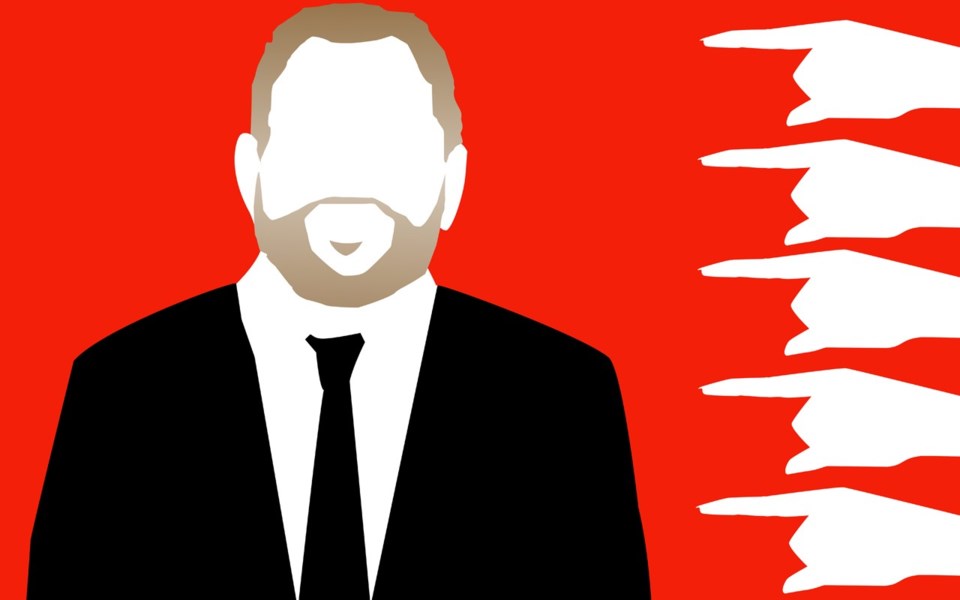If you have any interest at all in popular culture, you probably faced some form of moral crisis in 2017.
In all likelihood, some entertainer or journalist or other public figure you enjoyed was publicly accused of having committed sexual assault or perhaps another inconspicuous crime.
The #MeToo movement took centre stage in the latter half of the year, with several high-profile men seeing their names aflame for alleged past crimes.
It's certainly heartening to hear victims feeling comfortable enough to share their stories, to challenge the power system, to open the door to repercussions — directly or not— for the abuser.
It's worth noting, especially now, that the court of public opinion is different from a court of law. Of course, fake stories need to be picked apart and no innocent person should be subjected to an unfairly ruined reputation.
But it seems as though most arguments against a victim coming forward are dismantled nearly straightaway. Deniers frothing at the mouth charge that the accuser just wanted attention or fame (though it's hard to imagine anyone wishing that strangers would call them a liar or worse), or money (though as lawyer Bill Parker put it in an interview with Brandon Warne of zonecoverage.com, "One of the most valuable assets this hypothetical fraud would have in that situation is the threat of going public with this credible, damaging story. So if anyone with any sense at all who wanted to sell a made-up story implicating a celebrity for money would go to the celebrity with the threat of it first.")
In context, Parker was speaking about the sexual assault allegations by Minnesota freelance photographer Betsy Bissen against Miguel Sano, a slugger for the Minnesota Twins, levied on Dec. 28.
The debate over separating the art and the artist (or the athletics and the athlete, I suppose) has gone back decades with allegations against high-profile directors like Woody Allen and Roman Polanski, though it never seemed to affect their careers. People still show up to the theatres for their films, and there's no trouble securing A-list actors to appear in them.
If, as we are so often told, we vote with our wallets, then we've endorsed the wrong values and the wrong people for far too long.
But these days, in this climate, how do you take a stand against something while not totally shutting yourself off from the planet?
There can also be a domino effect for others. When allegations against Kevin Spacey were made public, his Netflix show House of Cards was almost immediately cancelled, leaving his co-stars in a lurch. Notably, co-star Robin Wright had fought for pay equity with Spacey for contributing more than her fair share of heavy lifting on the show and, though she received a raise, ultimately hadn't gotten even with him before the show was canned. (Netflix later announced the show was set to return sans Spacey, reclaiming work not only for Wright, but countless other worker bees who are nowhere nearly as well remunerated as she is.)
Of course, an individual's actions can affect a team, but how much should the team be held responsible if it was unaware of any wrongdoing?
In Sano's case, without any smoking gun, the team and/or the league would be within its rights to say there are no grounds for punishment. (There is precedent for going the other way, however, as Major League Baseball suspended Tampa Bay catcher Derek Norris for the remainder of the 2017 season after domestic violence allegations surfaced this summer.)
With other sources corroborating Bissen's allegations against Sano, current and former Twins offering her public support, and other red flags from his minor-league career being brought to light, it's certainly not looking like he's a stand-up guy (though he did deny the allegations to TMZ).
I don't want to give an out, but in terms of purely athletics, he's not replaceable in the same way Norris was (or to continue with Hollywood, even like a household name like Spacey could be removed from All the Money in the World and replaced by Christopher Plummer), so a team likely wouldn't cut ties with him outright. In the cold, harsh light of day, it's understandable why a team wouldn't do the right thing and fire him, even when some of his alleged behaviour occurred in uniform.
But as a fan of the team, is it possible to support the other eight guys out in the field while a dreadful person is responsible for their combined success?
Do we avoid rewatching some of our faves, say Pulp Fiction, because a couple despicable people had a role in its production?
Maybe it's about time we did. While not all encompassing, the website therottenappl.es has an option where you can enter a movie to determine whether anyone with sexual assault or harassment allegations was involved.
Besides, there's so much good work produced in environments that are safe and fair for everyone, and it's work that needs more attention. In 2018, let's focus on voting with our dollars to make those standard.




